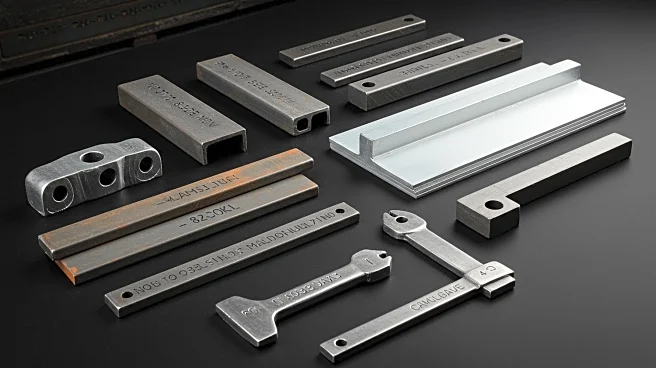What's Happening?
The U.S. Commerce Department has announced an expansion of steel and aluminum tariffs to include more than 400 product categories. This move affects a wide range of imports such as wind turbines, mobile cranes, appliances, and heavy equipment, among others. The tariffs impose a 50% rate on the steel and aluminum content of these products, along with the country rate on non-steel and non-aluminum content. The expansion aims to support the revitalization of the American steel and aluminum industries by closing loopholes for circumvention. The decision follows petitions from steelmakers like Cleveland Cliffs and Nucor, who advocated for broader tariffs. Despite opposition from foreign automakers and companies like Tesla, the tariffs will also cover parts for automotive exhaust systems and components for electric vehicles.
Why It's Important?
The expansion of tariffs is significant as it impacts a substantial portion of U.S. imports, estimated at over $200 billion last year. By increasing the effective tariff rate by approximately 1 percentage point, the move is likely to affect consumer prices and business costs, potentially driving inflation. Industries reliant on imported steel and aluminum, such as automotive and appliance manufacturers, may face increased production costs, which could be passed on to consumers. The tariffs are intended to bolster domestic production capabilities, but concerns remain about whether U.S. manufacturers can meet the demand for these materials.
What's Next?
The immediate implementation of these tariffs will likely prompt reactions from affected industries and international trade partners. Companies may seek alternative sourcing strategies or lobby for exemptions. The U.S. government may face diplomatic challenges as foreign nations respond to the increased trade barriers. Monitoring the impact on domestic production and consumer prices will be crucial in assessing the long-term effects of these tariffs.










